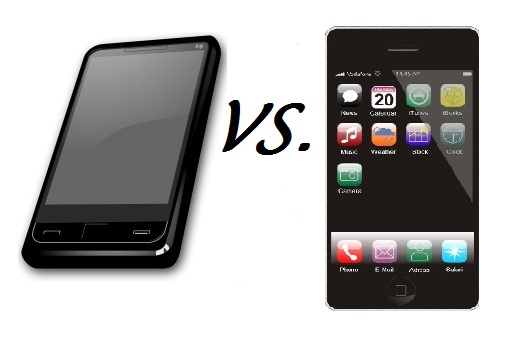 Android users lag in importance behind Apple customers in mobile commerce
Android users lag in importance behind Apple customers in mobile commerce
As opportunities in mobile commerce continue to grow and change, retailers consistently say that Apple consumer rule mobile commerce despite lower smartphone sales. However, it appears that though iPhone users are a minority they are far more likely to use their smartphones to make purchases and otherwise engage in mobile commerce.
Lucrative mobile commerce business
Apple seems to have bigger visibility with iPhones, but sales for Android powered phones accounted for 52.5 percent of smartphone sales and iPhones made up just 34.3 percent. Those figures can be misleading through, because Apple has huge gains and sales in the tablet market with the iPad alone dominating with 76 percent of the market share. Android and other manufacturers make up the rest.
However, that does not account for those actually using their smartphones to make mobile commerce transactions. These are essentially payments made by use of the smartphone – allowing some consumers to leave their wallet at home. Apple’s iPhone users may be a smaller crowd, but they are by far the most likely to use a smartphone for a purchase rather than whipping out the credit card or paying in cash.
The difference is in the user
Though iPhones account for lower sales, they are higher priced than most Android powered smartphones. In essence, those with less expendable income are far more likely to get a less expensive Android when smartphone shopping. The iPhone user is more into using the smartphone for all of the capacities it possesses and are more likely to be up to trying newer trends like mobile commerce transactions for simply buying coffee at a corner shop. Android users are in on the action, but are far behind iPhone consumers in cash to spend and on the willingness to try new ways of spending it.
Kevin Edwards of Affiliate Window said, “Apple users are typical early adopters. They’re generally tech-savvy individuals who embrace new ways of interacting and transacting online.” He also theorizes that Apple customers are more comfortable about shopping and more confident in shopping online. Not only are iPhone users more active in mobile commerce, the same can be said for iPad users as well.
Mobile commerce to have significant impact on UK retail industry
The Economist Intelligence Unit, an independent research and analysis firm operating in the European Union, has released a new report concerning the impact of e-commerce, mobile commerce, and social commerce on the retail industry in the United Kingdom. UK retailers have been seeing an increase in demand from consumers interested in using their mobile devices as payment platforms. In response, many retailers have begun adopting mobile commerce systems, such as NFC terminals, as well as bolstering their online presence to be more accommodating of social commerce and e-commerce.
New commerce to make up a third of all retail sales in the UK in 10 years
The report predicts that sales from e-commerce, m-commerce, and s-commerce are to make up more than a third of all sales in the UK within the next ten years. These types of commerce account for roughly 10% of all retail sales made in the UK currently. Social commerce is one of the most rapidly growing forms of commerce emerging in the UK. This form of concept refers to sales made through social media sites, like Facebook and Google+. E-commerce has always been a popular option for consumers that prefer not to visit physical stores, but mobile commerc e may become the leading form of commerce amongst all consumers.
e may become the leading form of commerce amongst all consumers.
Mobile commerce may reign supreme
The report shows that mobile commerce is growing in popularity and may soon become the primary shopping medium amongst consumers by 2022. The report suggests that consumers are more likely to make impulsive purchases when using mobile commerce platforms, thus giving retailers even more incentive to become more accommodating to these consumers. Given that many of these consumers are constantly connected to social media sites, both mobile commerce and social commerce initiative may stand to net major gains for retailers in the UK.
More consumers expected to participate in new forms of commerce in coming years
Online sales channels continue to outperform traditional channels. The Economist Intelligence Unit predicts that consumers will favor online channels throughout the next ten years, especially as more retailers adopt mobile commerce services and the availability of NFC-enabled mobile devices grows. Several companies are experimenting with alternatives to NFC technology that may broaden the horizon of mobile commerce, as well. These efforts are expected to bring more consumers into the fold and add further momentum to new forms of commerce in UK and around the world.
 Android users lag in importance behind Apple customers in mobile commerce
Android users lag in importance behind Apple customers in mobile commerce
 e may become the leading form of commerce amongst all consumers.
e may become the leading form of commerce amongst all consumers.